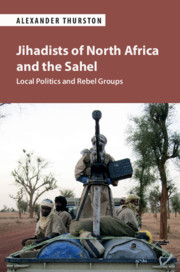6 - Libya
Fratricide in Derna
Published online by Cambridge University Press: 15 October 2020
Summary
This chapter analyzes how jurisprudence has supplied the language of dispute between rival jihadist factions in Libya. The chapter focuses on the northeastern coastal city of Derna, where al-Qada in the Islamic Maghreb's (AQIM’s) loose allies battled an Islamic State affiliate in 2014–2015. In Derna, jihadists first attempted to settle their differences through legal procedures, but soon had recourse to violence against one another. The case of Derna vividly exemplifies how jihadist jurisprudence attempts to grapple with rapidly shifting contexts and to provide and assess ex-post facto justifications for field commanders’ improvised decisions. Fiqh, moreover, can sometimes sharpen rather than resolve disputes, particularly when it is weaponized by hardliners against internal rivals. The chapter argues that intra-jihadist rifts in Libya reveal wider dynamics about the limits of competing strategies for jihadist coalition-building: more pragmatic strategies can alienate hardliners, but hardliners alienate civilians.Jihadists’ inability to sustain a cohesive coalition left them vulnerable to stronger factions within a multi-party civil war.
Keywords
- Type
- Chapter
- Information
- Jihadists of North Africa and the SahelLocal Politics and Rebel Groups, pp. 233 - 263Publisher: Cambridge University PressPrint publication year: 2020

